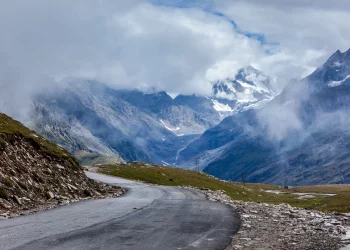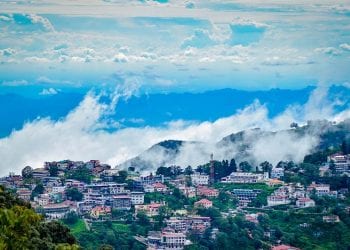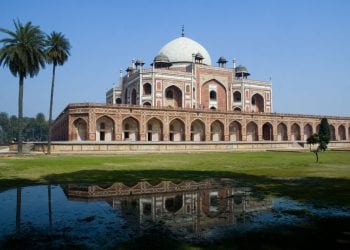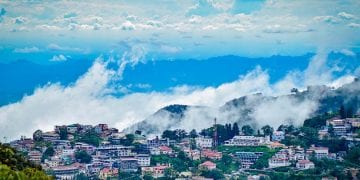A Spiritual Adventure To The Brahma Temple, Pushkar
Pushkar, the “Rose Garden Of Rajasthan” spreads its essence all over the globe. Pushkar is one of the antique cities of the civilization and home to over 400 temples. The town is also named as “Tirtha-Raj,” which is the crowned site amongst all the religious places in India. This Gem of the Desert, by the Aravalli Range, is encircled by hill-locks. Ratnagiri hills at the south, Nilgiri Hills at the North, Senthoora Hills at the west and the Suryagiri Hills at the east, guard the town.
The town has its mention in the epics and scriptures of the religious conviction. It is believed that the Creator of the Universe, Lord Brahma has hand-picked this spot for his supernatural conception. According to the mythological tale, a blue lotus was dropped on this land by Lord Brahma, and the petals turned to the magnificent lakes in Pushkar. There are three lakes ‘Jyeshta Pushkar’, ‘Madya Pushkar’ and the ‘Kanistha Pushkar’ lakes. The ‘Pushpa’ or flower from the ‘kar’ or hand of the Creator, gives the name ‘Pushkar.’ Thus this legacy enriched the historical and divine splendor of the setting. Brahma Temple Pushkar is the seat of Lord Brahma, and people of this land are gratified for his offerings to the barren soil.
Jagatpita Brahma Temple, or most popularly known as Brahma Temple, is positioned alongside the pure waters of the Pushkar Lake. The chants of the temples ensure a sanctified setting to the visitors. The construction dates back to the fourteenth century, thus has witnessed the change of decades. Still the architectural glamour and the eminence attract pilgrims from faraway lands. The red and blue contrast, marble etchings, shikhara, and motifs enrich the beauty of the temple. To reach the pillared canopies, one has to cover several marble steps. The temple was further modified and repaired by the Maharaja of Ratlam, Jawat Raj. The Brahma Temple of Pushkar makes this the “King of the sacred places of the Hindus.” On the eve of Kartik Poornima, the temple is most visited due to the festival. The walls are inlaid with numerous coins by the devotees. The ‘Garbhagriha’ of the temple exhibits the four-faced lord with the images of Vishnu, Gayatri, and Saraswati. There is a rosary, book, ‘kusha grass’ and a water pot in each hand. Apart from this, married men are not allowed inside the sanctum. During winters, the timings to visit are from 6:30 a.m. to 8:30 p.m. And during the summer months, it is from 6:00 a.m. to 9:00 p.m. There is an interval for the priests between 1:30 p.m. to 3:00 p.m. Regularly three ‘artis’ are part of the ritual- “Mangala Arti”, “Sandhya Arti”, and the “Ratre Shayan Arti”. The Parashar priests are responsible for taking care of every bit of this temple.
Seats Of Other Lords In Pushkar
1. Savitri Temple

It is a 1.5 kilometers long trek to the Goddess. One has to climb 650 steps to reach the temple, at the height of 750 ft. The temple also offers a beautiful view of the Pushkar city and lake. Early morning is the best time to visit because you can cherish the beautiful sunrise from here by the ranges. There are three idols in the sanctum- Goddess Sharada at the right, Goddess Savitri in the middle, and Goddess Saraswati at the left. There is a tradition that Savitri is to be worshipped before Gayatri due to her curse.
Location: On the Ratnagiri hill, which is south to the Brahma Temple.
Timing: The temple allows visitors from 5:00 a.m. to 9:00 p.m., with an interval from 12 p.m. to 4 p.m.
2. Pap Mochini Temple
This is the home of ‘Ekadashi Mata,’ who is believed to release the inner guilt of mortal beings. Thus people gave this site the name of ‘Pap Mochini’- ‘Respite from Cardinal Sins.’ Even, there is local lore of Lord Krishna and Aswathama in this temple. The setting of this temple is within the brown ranges and blue infinity sky.
Location: Northern part of Pushkar, in the Nilgiri Hills
Timings: Open all-day
3. Varaha Temple

‘Varaha’ or boar is an avatar of Lord Vishnu, the preserver, and protector of the Universe. This seat is considered to be ancient amongst others. It is believed that a demon, Hiranayakshm was planning to drown the civilization, and Lord Vishnu saved it. Aurangzeb destroyed this temple, but Jaipur’s King, Raja Sawai Jai Singh II re-built the structure. One can still witness the remnants of the early model. The material of construction has a blackish tinge in white.
Location: Near the Brahma Temple in Pushkar
Timing: Open all day, but you can stay in for approximately an hour.
4. Rangji Temple
This temple is the seat of ‘Rangji’ Another avatar of Lord Vishnu. The architectural beauty is the confluence of Rajputs, Southern-India, and Mughal patterns. The ‘Gopuram’ structure and the ‘Vaikuntha Venkatesh’ enhance the exquisiteness of the shrine. There are four Vaishnava’s symbolic corners in this shrine.
Location: The temple is at a distance from the Ajmer City, on a hilly terrain
Timing: The temple is open from 6 a.m. to 7 p.m., and 1 p.m. to 4 p.m. in the lunch break
5. Atmateshwar Temple
Lord Shiva is the destroyer and restorer of the Universe. The temple is designed in the Hemadpanti style with magnificent carvings all over. This seat mainly idolizes the phallic traditions of worship. The eve of Shivratri is the ideal time for the visitors to venerate the cosmic creation. Black stones and lime is the primary construction material used. The ceiling is of a single stone slab and offers an ornamental appeal.
Location: By the Pushkar Lake, near Varaha Temple
Timing: The temple is open from 9:30 a.m. to 7:30 p.m. with an interval in between 1:30 p.m. to 4:30 p.m.
Other Unforgettable Sites In Pushkar
1. Pushkar Lake

The lake has 52 ghats and is surrounded by blue structures of shrines. The ambiance of the lake is in itself pure, with chants and the essence of the temples. A holy trip to Pushkar is incomplete without a dip in the Pushkar waters. This water body is an artificial dam created in the desert lands of Rajasthan. The bank of this lake settles the Pushkar Fair.
2. Gurudwara Singh Sabha
This are sites on the eastern side of Pushkar. This structure stands in the 19th century. This shrine is to commemorate the presence of Guru Nanak Dev and Guru Govind Singh Ji. Devanagari, Gurumukhi, Persian and Roman Scriptures are inlaid on the slabs of this holy site.
3. Man Mahal
The Rajput ruler, Raja Man Singh I built this awe-striking palace for his guests in Pushkar. This royalty serves with Rajasthani classics and exquisiteness. The palace is presently turned to a luxurious hotel for the visitors. The rooms offer a grand view of the lakes and temples of the town. The ‘Sandhya Arti’ of Brahma Temple in the dark is a memorable moment from the hotel. There are guides to enrich your knowledge with the history of the palace.
Pushkar Adventure And Flavours
1. The Pushkar Fair
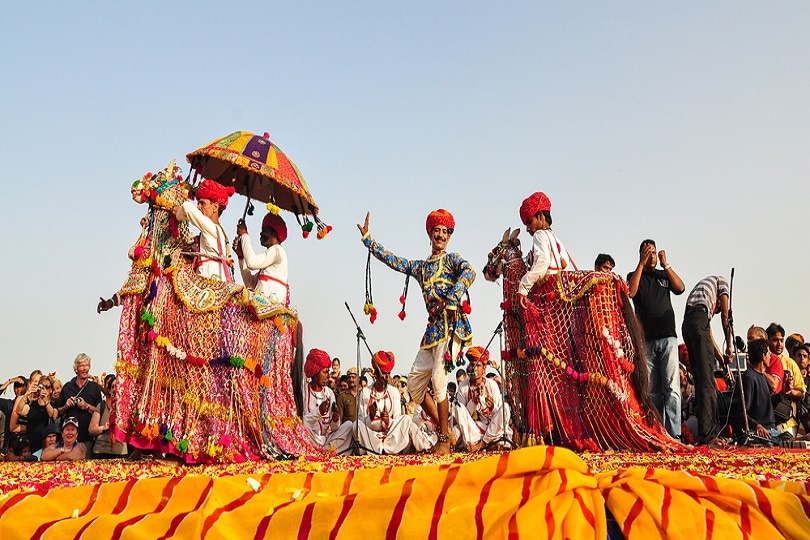
The Kartik Mela or the Pushkar Camel Fair brings back the soul of the town with it. It is mostly dated at the end of October month. This fair attracts both domestic and international tourists to exhibit the royal and ethnic motif of Rajasthan. Events and competitions are also a part of this fair. Animal fair is also hosted. One can also come across the traditional handicrafts of the inhabitants.
2. The Camel Safari

A ride on a Camel in the desert is a must-experience. It offers the tourists with the lifestyle of the desert dwellers. The local folk culture, including songs and dance, is also a part of this ride. One can select multiple-days ride to cover the real Rajasthan. The Tourist Department of the Government of Rajasthan helps you book safaris in advance. The ride starts early due to the extreme temperature of the sand. Carry specific foodstuffs, and cover yourself to avoid the heat.
3. The Jeep Safari
If you are not comfortable with the slow ride, you can cover the locales of Pushkar on jeep. You can also book this from the Government Tourist departments. Overnight safari, resting zones in tents, typical Rajasthani food are a part of this trip. The golden sand, temple ruins, and palaces get exhibited by the guide.
The Pushkar Food Tour
Pushkar is an ideal place for street food. A food guide will take you to all the well-known restaurants and joints that offer a classic taste of Western India. From the authentic ‘Dal Bati Churma’ to “Malpua you can let your taste buds satisfied with the sumptuous Rajasthani cuisine. You can also buy dry foodstuff for your journey. One should always keep a day for this Food Walk; otherwise, they will half explore the culture and charm of the town.
To experience the union of mythology, heritage, and valor visit the Royal Land of Pushkar. Solo, family or friends, you will enjoy every bit of Pushkar irrespective of who you plan your trip with.
Recent Posts
Top Picks
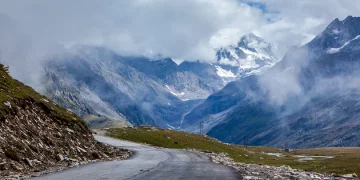
- OYO
 15 April, 2024
15 April, 2024 - Cultural Tour

- OYO
 15 April, 2024
15 April, 2024 - Cultural Tour

- OYO
 15 April, 2024
15 April, 2024 - Cultural Tour

- OYO
 15 April, 2024
15 April, 2024 - Cultural Tour

- OYO
 15 April, 2024
15 April, 2024 - Cultural Tour

Please rotate your device
Please go back to portrait mode for the best experience



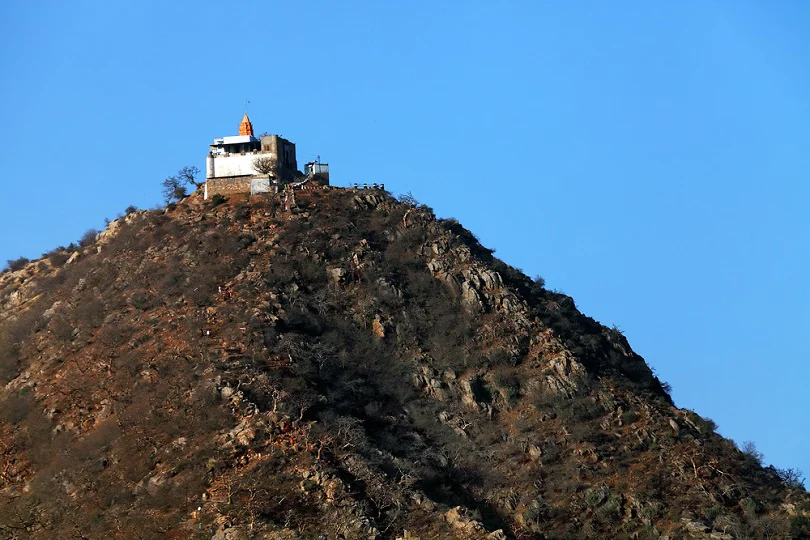

 April 15, 2024
April 15, 2024 